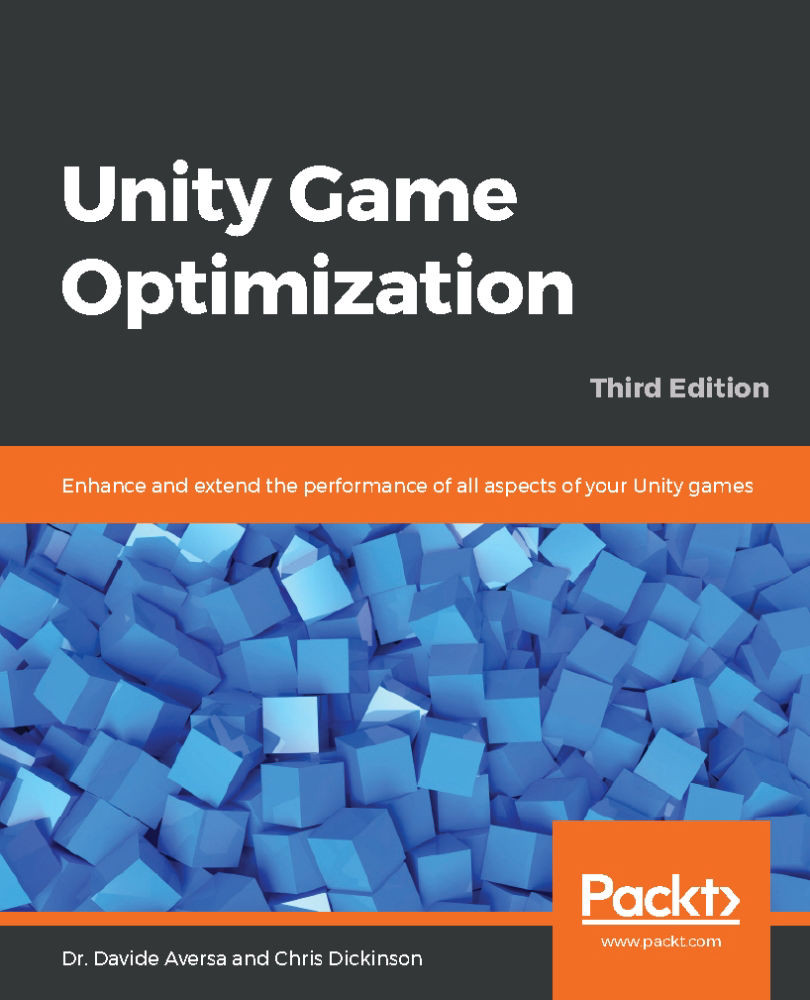The SendMessage() method and family of GameObject.Find() methods are notoriously expensive and should be avoided at all costs. The SendMessage() method is about 2,000 times slower than a simple function call, and the cost of the Find() method scales very poorly with scene complexity since it must iterate through every GameObject in the scene. It is sometimes forgivable to call Find() during the initialization of a scene, such as during an Awake() or Start() callback. Even in this case, it should only be used to acquire objects that we know for certain already exist in the scene and for scenes that have only a handful of GameObjects in them. Regardless, using either of these methods for inter-object communication at runtime is likely to generate a very noticeable overhead and, potentially, dropped frames.
Relying on Find() and SendMessage...



